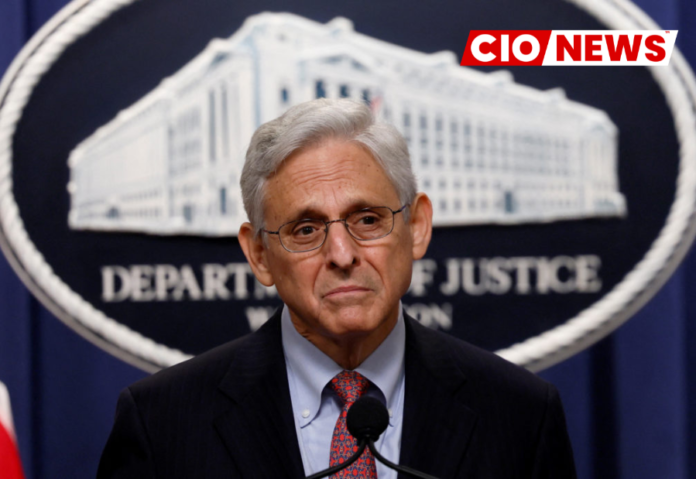Princeton scholar Jonathan Mayer has been hired to support the US Department of Justice’s (DOJ) AI capacity-building activities and to advise on legal regulations governing its use
US Attorney General Merrick Garland has named the first chief AI officer to the Department of Justice (DOJ), hinting that the technology would undergo increased legal scrutiny.
Jonathan Mayer, a well-known computer science and public policy professor at Princeton University, will be both the DOJ’s top AI officer and its chief science and technology officer.
Mayer will assist the DOJ in being “prepared for both the challenges and opportunities that new technologies present,” according to Garland’s statement.
According to the DOJ, Mayer’s appointment is in response to President Joe Biden’s recent executive order on AI, which focuses on making AI tools safe and secure for US residents to use and requires each federal agency to appoint a chief AI officer to hold primary responsibility “for coordinating their agency’s use of AI, promoting AI innovation in their agency, managing risks from their agency’s use of AI, and carrying out the responsibilities.”
While appropriate use of AI has the potential to make the world “more prosperous, productive, innovative, and secure,” irresponsible usage can result in fraud, prejudice, bias, and disinformation, according to the executive order.
As CAIO, Mayer will also work on the DOJ’s technology capacity-building activities, including assistance in hiring technical employees, according to the DOJ.
Mayer will work in the DOJ’s Office of Legal Policy, which is assembling a team of technical and policy specialists to tackle critical issues like AI and cybersecurity. The team will collaborate throughout the DOJ and with other government partners on technological concerns, according to a statement.
Mayer will also manage the DOJ’s newly formed Emerging Technology Board, which oversees and organizes AI and other emerging technologies across the department.
Two technology analysts praised the DOJ’s move to hire Mayer.
Ritu Jyoti, global vice president for AI and automation at IDC, stated that the chief AI officer role is becoming a “new fixture” at firms seeking to apply AI internally and that Mayer’s experience qualifies him for the position.
“The individual best fit for the role would be someone with a strong technical understanding of AI, business acumen, leadership skills, communication skills, and ethical and legal knowledge,” she said. “They should also be adaptable, forward-thinking, and passionate about leveraging AI to drive innovation and efficiency.”
Jyoti expects the DOJ to investigate AI usage from “all angles,” including appropriate use by external groups, but most AI developers should not be concerned about increased DOJ scrutiny.
“Responsible use of AI is paramount for scaling AI, and I would not view this as more scrutiny and companies being nervous, but as a tool to help everyone thrive in the AI era responsibly,” she said in a statement.
Mike Demler, an independent technology analyst specializing in semiconductors and artificial intelligence, emphasized that the US government has a crucial need for technological professionals to advise politicians.
“Just about all companies are just beginning to learn how to use AI,” he went on to say. “I’d take it as a good thing to have someone in the DOJ that actually can understand the technology.”
Organizations seeking to exploit AI, such as by spreading misinformation, should be mindful of the DOJ’s new AI expertise, Demler added.
Do Follow: CIO News LinkedIn Account | CIO News Facebook | CIO News Youtube | CIO News Twitter
About us:
CIO News, a proprietary of Mercadeo, produces award-winning content and resources for IT leaders across any industry through print articles and recorded video interviews on topics in the technology sector such as Digital Transformation, Artificial Intelligence (AI), Machine Learning (ML), Cloud, Robotics, Cyber-security, Data, Analytics, SOC, SASE, among other technology topics.






